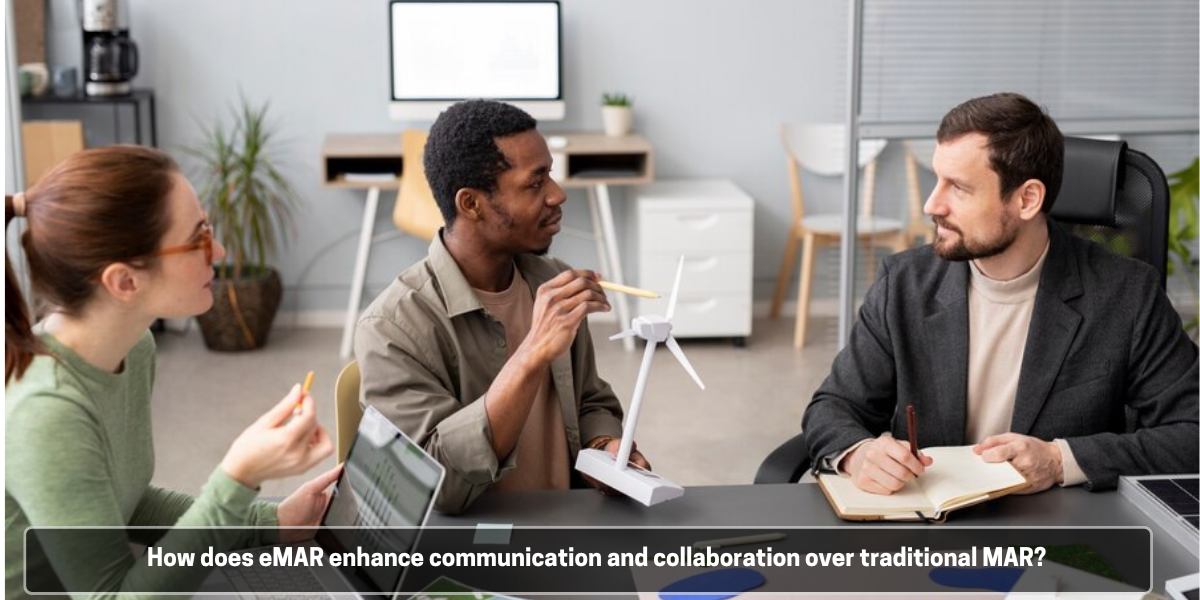In healthcare settings, effective collaboration and communication are essential elements that ensure patient safety and quality care. Every healthcare setting, from hospitals to care homes, requires professionals to work in harmony, share critical information seamlessly, and make informed decisions. Effective communication ensures that the right treatment reaches the right patient at the right time, while good collaboration among healthcare professionals promotes a supportive environment. Here, we explore how electronic medication administration records have transformed communication and collaboration in healthcare settings:
Real-time information sharing: Electronic MAR system (eMAR) provides instant access to the most up-to-date medication records from any authorised device. This promotes seamless information flow among healthcare providers. It ensures that everyone involved has the latest information about a patient’s medications and treatment plan. Whether during shift changes or emergencies, healthcare professionals can make decisions based on the most current data available.
Enhanced collaboration features: Many eMAR systems offer built-in communication features, such as secure messaging or real-time chat functions. This ensures that nurses, pharmacists, and physicians can easily communicate with each other. They can get in touch to address medication administration concerns, for clarifications, or to discuss potential issues. This streamlined communication promotes a culture of collaboration, where issues are resolved quickly and effectively.
Automated alerts and notifications: eMAR can be configured to send automated alerts to relevant healthcare providers. For example, alerts can notify pharmacists if a medication needs dispensing or warn nursing staff about potential drug interactions. This proactive approach ensures timely communication and avoids potential delays or errors. The notification system also ensures compliance with the prescription. By acting as a safety net, these alerts significantly reduce the likelihood of missed medications or harmful interactions.
Detailed audit trails: eMAR systems track all changes made to medication orders and communication exchanges. This creates a comprehensive record of communication regarding a patient’s medication management. This helps promote transparency, accountability, and improved collaboration. Detailed audit trails also allow for derailed analysis. It helps healthcare providers identify patterns, learn from past incidents, and implement process improvements.
eMAR systems help healthcare providers maintain effective communication and accountability. The ability to access comprehensive medication records ensures that all team members stay informed and aligned, regardless of their location. This is especially valuable in larger healthcare settings or during multidisciplinary medical cases. Integrated communication features within eMAR systems help break down silos between different healthcare roles. Pharmacists, nurses, and doctors can communicate more efficiently – which leads to a more cohesive approach to patient care. Instead of relying on outdated records or waiting for paper charts to be updated, healthcare professionals can use eMAR to receive and provide information instantly. If your healthcare facility is still using MAR sheets, it’s time to consider the advantages of upgrading to an eMAR system. Contact one of our team members for a 30 minute webinar demo.







